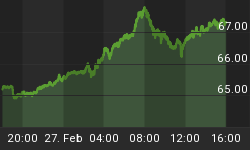If Greece eventually gets funding from the International Monetary Fund ("IMF"), it may not be so different from the U.S. getting its funding from China. There are two main fears in the eurzone against IMF involvement: a perception that Europe can't solve its problems internally; and the potential influence of the IMF on European policies.
With respect to the former, in our assessment, Europe needs to swallow its pride. The IMF is equipped to deal with Greece. The European Union simply does not have the processes set up to deal with Greece. Not having a process is not necessarily a bad thing, as it ensures there is no easy bailout, forcing Greece to tackle its issues. That said, European leaders presently appear like a pack of headless chickens, with many notable voices publicly contradicting one another. Such politicking is the result of a lack of coordination. We don't doubt that Europe is capable of coordinating help, but for the time being, most, we believe, would agree, that a good process is not yet in place.
From Greece's point of view, they simply want access to cheap money. They don't care whether the money comes from the IMF or the European Union. In that context, Greece is in a very similar situation to the U.S.: to fund its deficits, the U.S. doesn't care where the money is coming from, as long as it is cheap. China has long been accepted as a convenient source of money to finance America's spending addiction.
The argument in the eurozone about too much interference by the IMF into European politics is a fair one; however, is it all that different from the influence China has over the U.S.? To illustrate China's influence, we would like to point to George H.W. Bush's defeat in his presidential bid against Bill Clinton. At the time, tight monetary policy ahead of the election was cited as a reason why Bush Sr. lost. A consequence of China's massive holdings of U.S. debt is that Chinese purchases can influence the cost of credit in the U.S., and with it, U.S. economic growth. Incidentally, China has been less active in buying U.S. Treasuries in recent months, possibly putting upward pressure on U.S. rates. Given the lag time such activity has to the real economy, China's actions may potentially influence upcoming mid-term elections in the U.S.
There is, of course, a cure against influence by the IMF on Greece or China on the U.S.: it's called living within your means. If Greece or the U.S. were to live within their means, they wouldn't need to access the credit markets to finance their largesse. However, it's an option politicians don't like to hear.
There's another parallel between U.S. and Greece: while the U.S. hasn't faced a national strike because of its healthcare reform, the political process in both the U.S. and Europe can be an ugly one. Greece wants access to cheap money; France's President Sarkozy, whose political fortunes are threatened, sees the IMF's managing director as a political rival at home; Germany has the deepest pockets in Europe and isn't about to hand out money for free. Caught in the middle may be the European Central Bank (ECB), which is most concerned about the integrity of the euro. In our opinion, this episode will deal a serious lesson to the eurozone and everyone invloved. The critics will need to learn that the euro can weather a storm; the European Commission needs to learn to be a more assertive leader in coordinating policy; and the ECB needs to learn to allow the political process to play its course, so they can focus on monetary policy.
And, maybe, at end the of the process, some will realize that the problem isn't that Greece's cost of borrowing is too high, but that access to money was too cheap for most of the past decade. In that context, we most appreciate ECB President Trichet's comments that any assistance for Greece should not be focused on lowering the cost of borrowing, but on providing emergency access to cash. In our assessment, it is a positive that the markets stepped in where policy makers failed, forcing Greece to institute tough austerity measures. Germany is absolutely right in not being bullied into a quick fix - when it comes to government problems - whether in Greece, the U.S. or elsewhere - quick fixes are difficult to come by.















